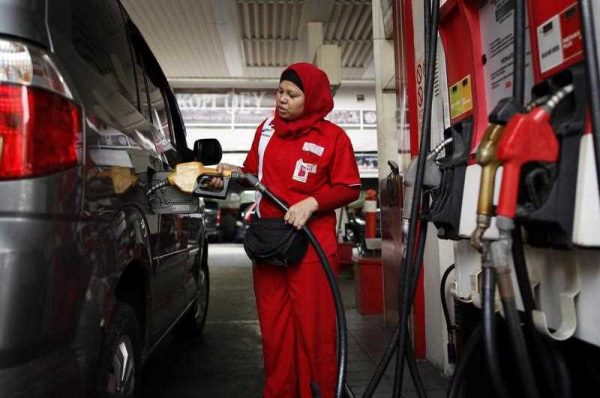Broadly speaking, these can be used either to finance consumption or to create productive assets that will generate future income. Former president Suharto chose the latter option, using resource revenues to build roads, schools, markets, health facilities, irrigation networks and drinking water supply. Indonesia benefited considerably from such investments in terms of higher incomes and reduced poverty.
Later presidents have favoured the option of selling the family silver. All of the Susilo Bambang Yudhoyono (SBY) government’s resource revenue was frittered away as unnecessary subsidies for energy consumption, reducing Indonesia’s growth potential and contributing to increases in income inequality — since these subsidies flowed overwhelmingly to the rich and middle class. Incoming president Joko Widodo has already earned plaudits for reducing the fuel subsidy, but SBY did exactly the same thing soon after coming to office. Neither removed the subsidy altogether, nor took the opportunity to link domestic energy prices to the world oil price. If the latter now increases as it did under SBY, the subsidy cost will increase commensurately, and Indonesia will be back at square one.
Another question facing the administration is: what is the appropriate policy for the manufacturing sector? The share of manufacturing in total output peaked in about 2001 and has declined subsequently, causing considerable angst. Yet this trend reflects Indonesia’s past success in raising average incomes. As populations become wealthier they demand more services (education, health care, banking, entertainment, and the like) relative to manufactured goods. Most services are not imported so more must be produced, which means withdrawing labour and capital from manufacturing. Globally, manufacturing typically peaks at 25–30 per cent of total output, declining thereafter to 10–15 per cent or less. Even in the manufacturing powerhouse of China manufacturing has been declining since the mid-1990s.
Attempting to reverse this pattern is not in Indonesia’s best interests. One such policy is to mandate the domestic processing of metal ores rather than exporting them. The rationale for this is that Indonesia supposedly has been missing out on the potential for ‘value adding’: that is, converting metal ore to the much more valuable metal prior to export.
It is always possible to increase value added in any activity by making further processing artificially more profitable — in this case by removing the option of exporting unprocessed ore. The effect is to shift labour and capital away from the rest of the economy into ore refining, so the increased value added (that is, earnings of labour and capital) in manufacturing is offset by reduced value added elsewhere. Domestic processing in Indonesia is more costly than processing in other countries, so this policy actually reduces the net gain to Indonesia from the exploitation of its natural resources.
Finally there is the question of spending on infrastructure. SBY put considerable emphasis on public private partnerships (PPPs) at the beginning of his term in office, arguing that the government itself could not afford the level of spending required. But two international infrastructure summits intended to secure private sector participation turned out to be wishful thinking.
The prerequisite for private sector involvement is simply that projected returns are commensurate with the risks involved. Evidently the combination of return and risk in Indonesia is considered unacceptable. This is explained by the government’s insistence on controlling infrastructure user charges, and the fear on the part of potential partners and their bankers that regulated charges will be subject to the vagaries of politics. If this fear can be overcome, the private sector will quickly come on board.
The SBY administration often excused its poor performance in relation to building new infrastructure by emphasising the difficulty of taking over the land needed for this purpose, but this difficulty is self-imposed. The government has an unambiguous constitutional power to compulsorily acquire land that is needed in the best interests of the public, subject to fair compensation for the existing owners. Successive governments have adopted a policy where the amount of compensation has to be accepted by the owners before the land changes hands, but there is no reason why this should be so. Indeed, common sense demands that the land should be acquired immediately the need for it is demonstrated, with compensation being paid at that time. If landowners dispute that the compensation is fair, they should have the right to have the amount reviewed by the courts, but this process need not delay government acquisition of the land.
Ross McLeod is Adjunct Associate Professor at the Indonesia Project, The Australian National University. He was Editor of the Bulletin of Indonesian Economic Studies from 1998–2011. This is an edited version of his presentation at the Indonesia Study Group seminar on 26 November 2014.

